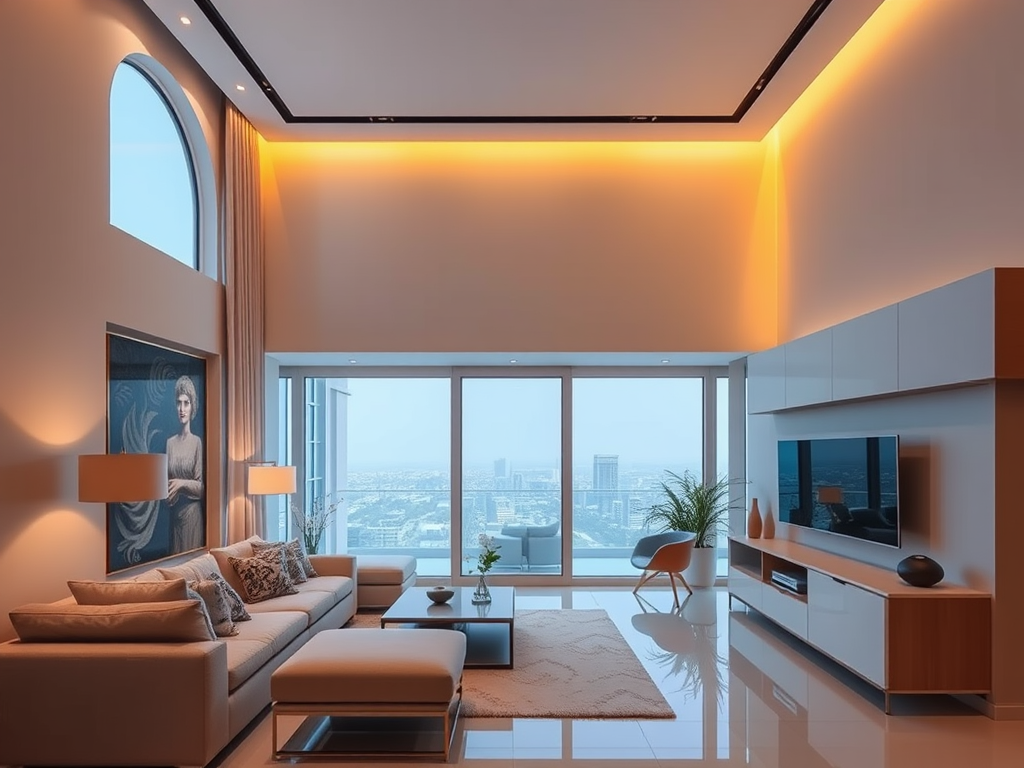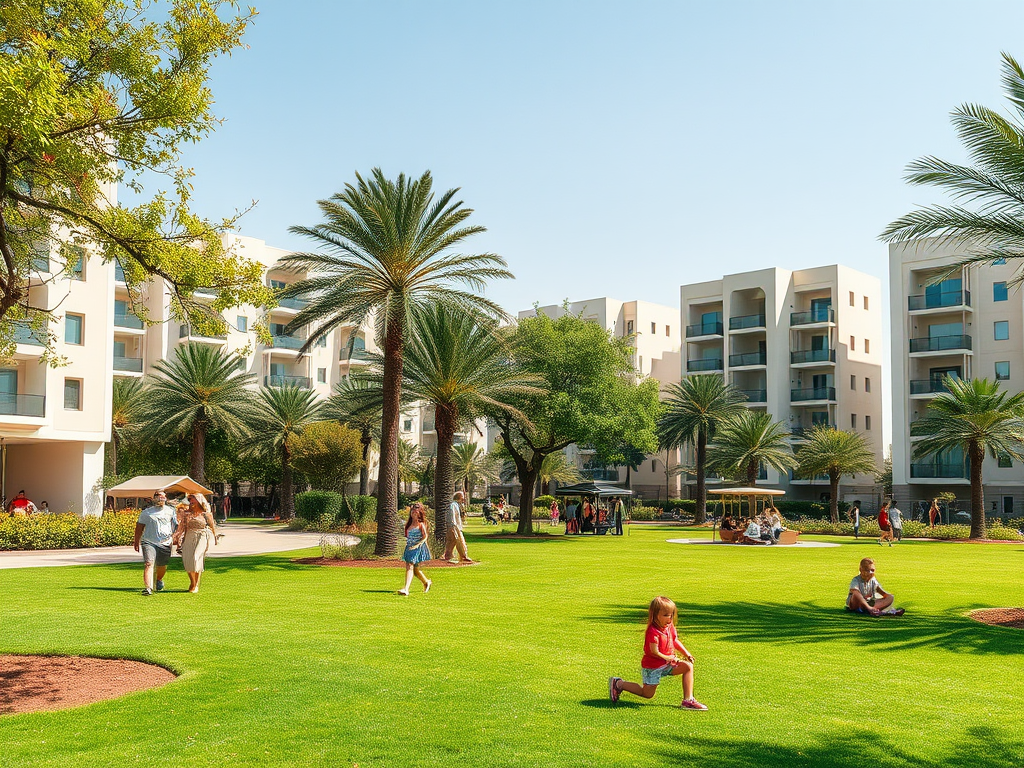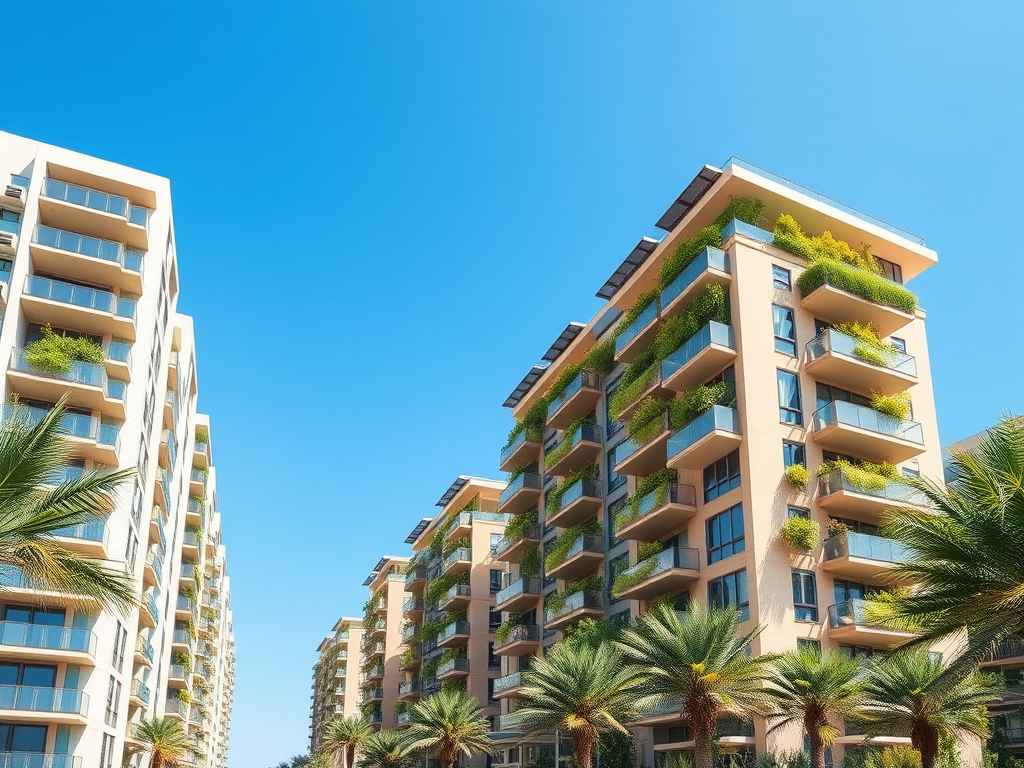The urban housing landscape in Dubai is undergoing transformative changes that address housing demands and sustainability challenges. As the city positions itself as a global hub for business and tourism, innovation in housing solutions is paramount. Future urban housing strategies will focus on affordability, sustainability, and advanced technology integration to enhance the quality of life for residents. In this article, we will explore several critical factors influencing Dubai’s urban housing future, including population growth, smart city initiatives, sustainability efforts, and community development.
Population Growth and Housing Demand

Dubai’s population has been steadily increasing over the past few decades, driving the demand for urban housing. The emirate’s appeal as an expatriate hub and business center results in a continuous influx of residents from diverse backgrounds. This growth presents both challenges and opportunities for housing development. To manage this influx and cater to the aspirational needs of its residents, Dubai must create housing solutions that are not only plentiful but also varied in choice and style. The projected population is expected to reach 5.5 million by 2030, indicating a 33% increase, which means:
- Increased investment in residential real estate.
- More emphasis on mixed-use developments that combine living, working, and leisure spaces.
- Greater demand for affordable housing options to accommodate all income levels.
- Focus on vertical living to maximize available space.
Smart City Initiatives

Dubai has made significant strides toward becoming a smart city, aiming to integrate technology into urban living. The Dubai Smart City initiative focuses on enhancing the urban environment through innovative services, including efficient public transportation and energy management systems. As this initiative progresses, new urban housing developments will likely incorporate smart home technologies, which could result in:
- Automated energy management systems that reduce utility costs.
- Connected public services that enhance resident safety and convenience.
- Data-driven urban planning that responds to real-time resident needs.
- Mobile applications for improved community engagement and service requests.
In response to global climate change efforts and local environmental policies, the future of housing in Dubai will prominently feature sustainability. Developers are increasingly adopting green building standards that emphasize energy efficiency, renewable energy sources, and sustainable materials. In recent years, several high-profile projects have set a benchmark for eco-friendly designs, leading to a vibrant green movement in housing construction. Key sustainability strategies include:
- Utilizing solar energy in residential complexes.
- Implementing water conservation systems.
- Incorporating green spaces that promote biodiversity.
- Reducing the carbon footprint of buildings through efficient waste management systems.
Community Development and Inclusivity
The future of urban housing in Dubai is not just about building more homes but also fostering inclusive communities where residents can thrive. The government and private sector are increasingly focused on integrating social amenities, such as educational institutions, parks, and health facilities, within residential districts. This approach encourages a sense of community and well-being among residents. To ensure inclusivity, new housing projects will need to prioritize:
- Affordable housing units accessible to low- and middle-income families.
- Designing open spaces that promote social interaction.
- Facility investments in public transportation for easy access to jobs and services.
- Involvement of local stakeholders in the planning process.
Conclusion
The future of urban housing in Dubai promises to be dynamic, addressing the evolving needs of its diverse population while prioritizing sustainability and technological advancements. With a comprehensive approach that encompasses innovative design, smart technologies, and community engagement, Dubai is on track to create urban living spaces that are functional, inclusive, and environmentally sustainable. As developers respond to these changes, they will not only meet the immediate housing demands but also shape the emirate’s long-term vision as a progressive urban center.
Frequently Asked Questions
1. What are the main factors driving urban housing in Dubai’s future?
The main factors include population growth, smart city initiatives, sustainability efforts, and community development priorities.
2. How is Dubai integrating technology into urban housing?
Dubai is incorporating smart home technologies and data-driven urban planning to enhance the resident experience and improve city services.
3. What sustainability measures are being implemented in housing developments?
Sustainability measures include the use of renewable energy, water conservation systems, and the development of green spaces within residential areas.
4. Are there affordable housing options available in Dubai?
Yes, efforts are being made to include affordable housing units within new developments to accommodate low- and middle-income families.
5. How is community involvement factored into urban housing projects?
Community involvement is prioritized by engaging local stakeholders in the planning and development processes to create inclusive living environments.
